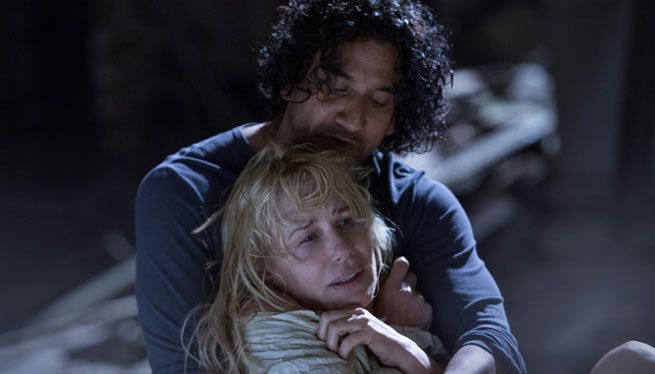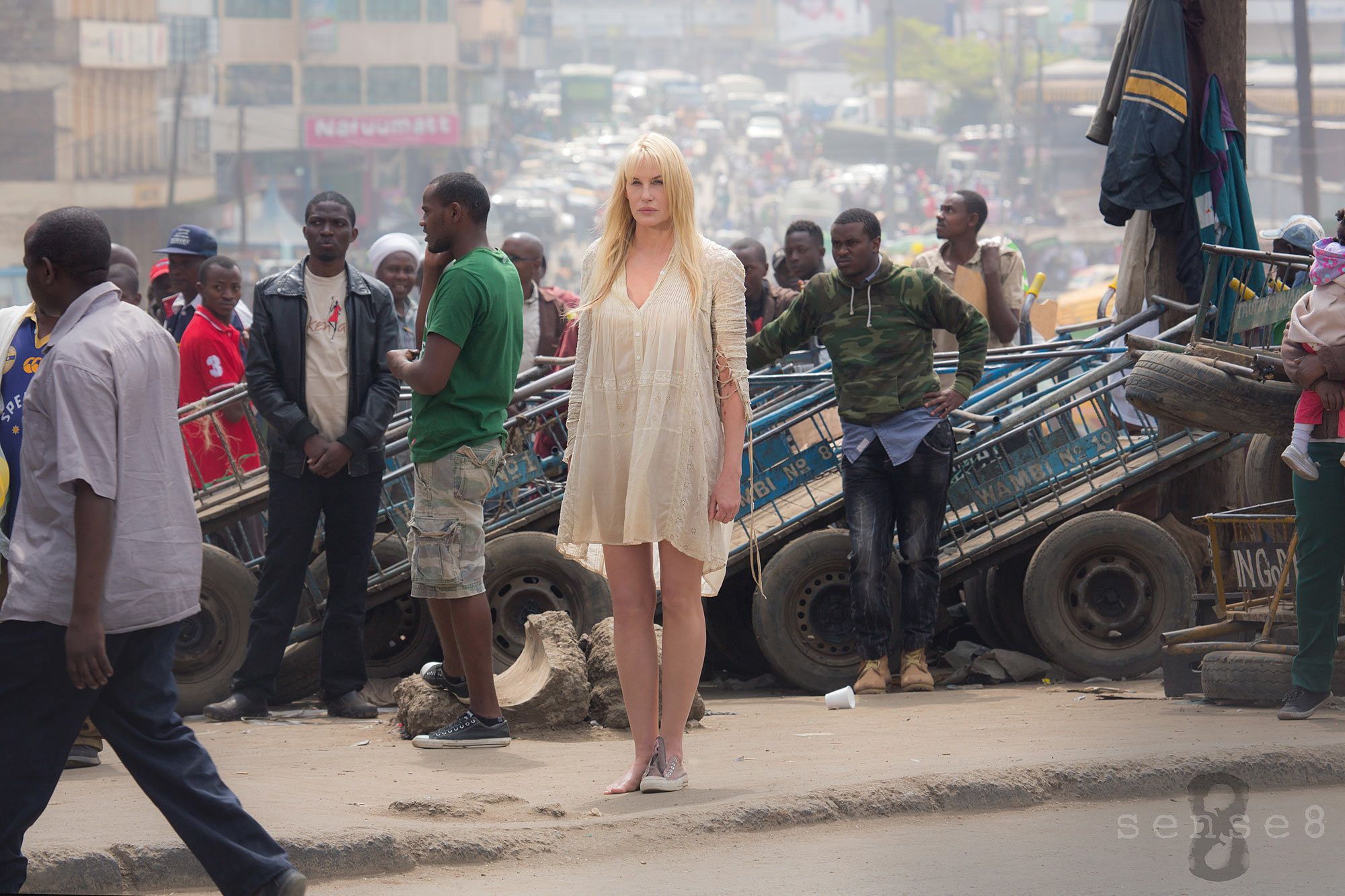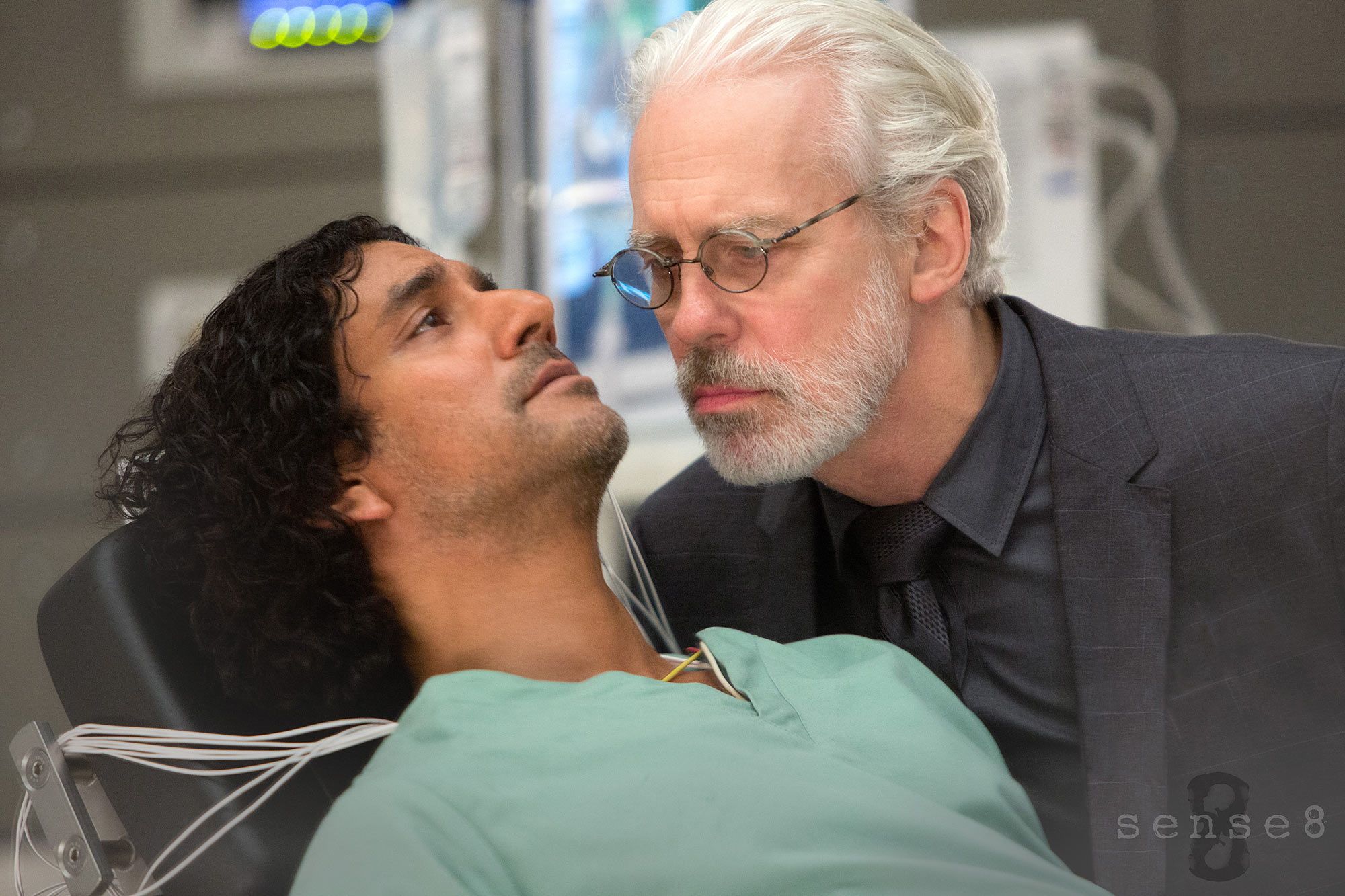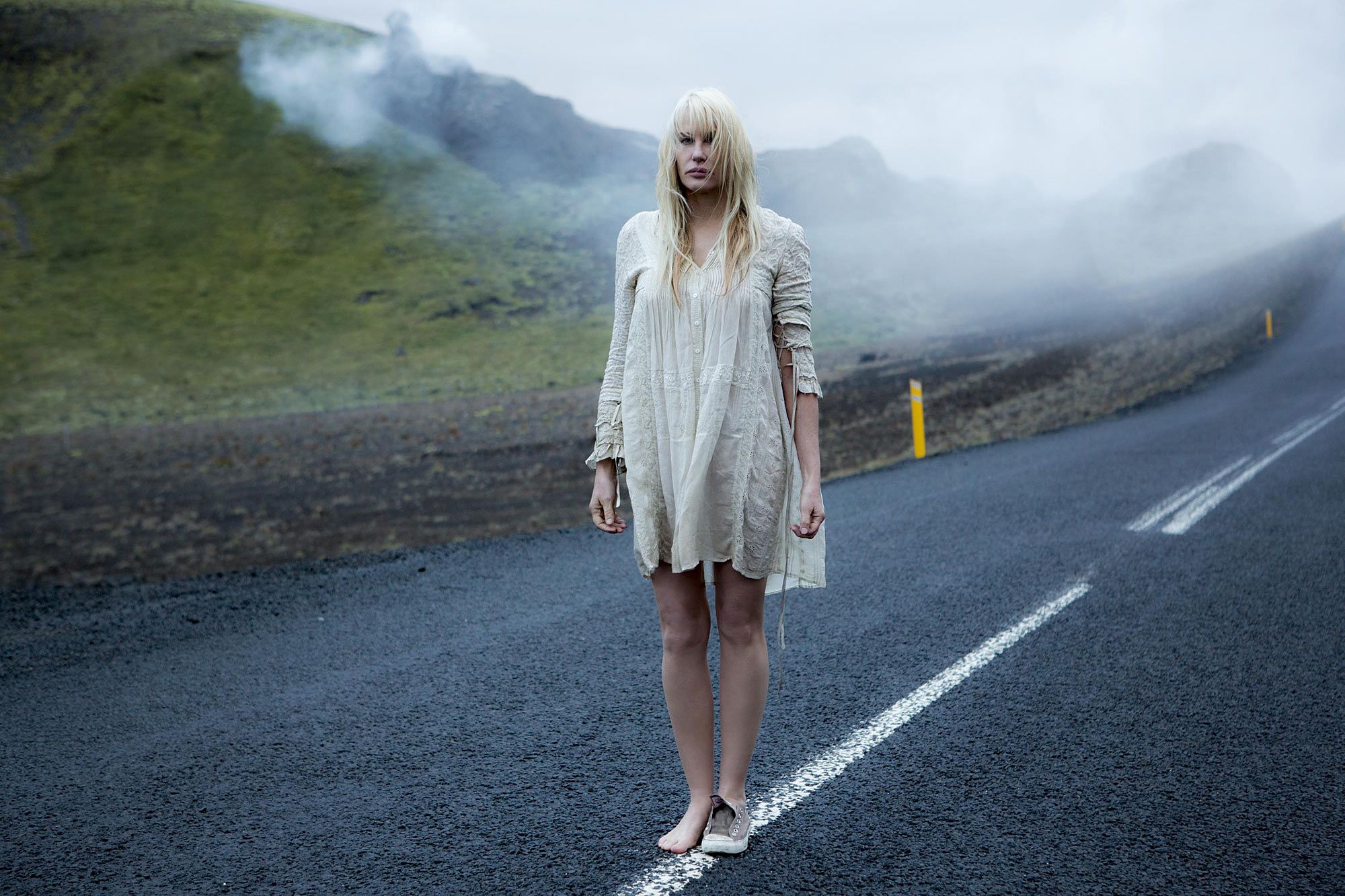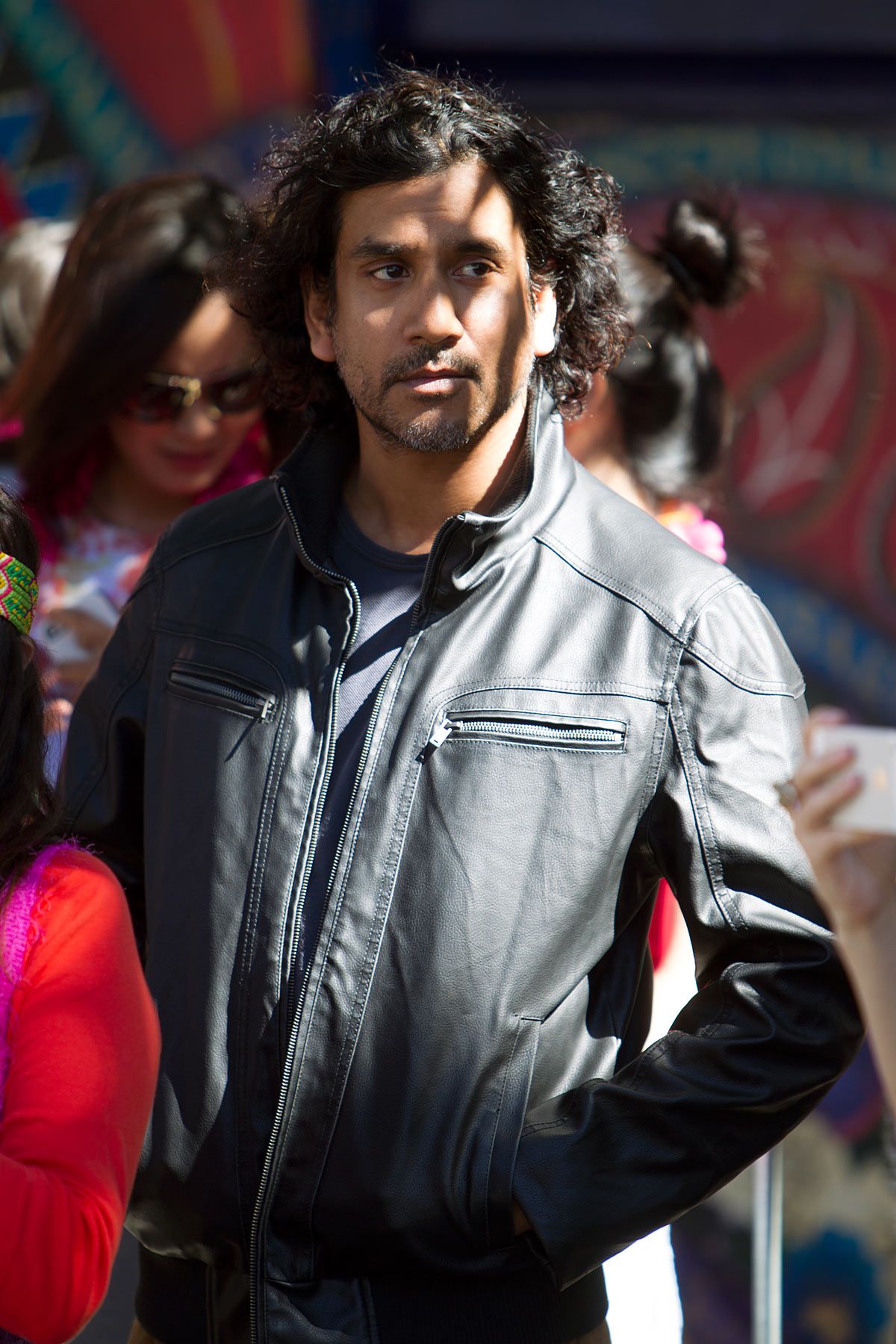If you ask Daryl Hannah and Naveen Andrews why they were eager to jump aboard Netflix's epic new series "Sense8," they give two compelling reasons: Andy Wachowski and Lana Wachowski.
The filmmaking siblings, who long ago established themselves as visionaries in the arena of fantastic cinema, are bringing their distinctive sensibility to the small screen alongside TV veteran and co-creator J. Michael Straczynski -- but still in grand scale -- designed to play out like a Magnum opus movie composed of twelve parts that will all be available to stream on June 5. Aiming to break new ground in issue-oriented sci-fi, the series remains shrouded in mystery, promising to focus on a handful of characters scattered across the globe.
While Hannah -- a veteran of classic films like "Blade Runner," "Splash" and "Kill Bill" -- and Andrews -- best known as a core cast member of the game-changing TV series "Lost" -- were unable to shed much light on the series as a whole, they were more than happy to sing the praises of the Wachowskis and the adventurous creative freedom they felt fueled the entire process.
On the irresistible allure of the Wachowskis' involvement:
Daryl Hannah: When I found out about it, that's really all I knew about it. [Laughs] And that was enough for me. I'm a massive fan of their brilliance and their creativity. I've tried most of my career to just work with great directors. I've had the good fortune to work with some of the world's greatest directors, and it's been a pretty good path to follow. So yeah, they proved to be everything and more than I had wished -- and the project, too. When I finally found out what the theme was -- or themes, I should say -- I was even more thrilled.
Naveen Andrews: Very similarly, the chance to do something on an epic scale, that also had this shocking kind of intimacy, it's very rare to come across writing like that. And I try to do things that you've never done before and to be surprised, in a good way.
On the show's dueling themes of connectedness and separateness:
Andrews: We emphasize our differences all the time, in terms of nations, states, governments--
Hannah: Individuality.
Andrews: Exactly. And to take that really profound step and cross that -- especially in this day and age with what's happening in America now, what's happening in Eastern Europe and Russia, in terms of the rise of nationalism, fascism in Europe -- it's really important, I think, to come back to...
Hannah: Our commonalities.
Andrews: Yeah. Whether we like it or not, we are connected.
Hannah: And yet, we're also separate. So there you have it.
Andrews: There's your paradox.
On what intrigues them about the Netflix model of streaming and binge-watching original content:
Hannah: It's an incredibly flexible medium. It really creates a new paradigm, I think. It's not really a movie and it's not TV. Our series is more like a movie -- but one that has twelve episodes -- than it is a TV show. Whereas some of [Netflix's] shows are more like TV shows. It really is an incredible new paradigm because you can take it at your own pace. You can do anything that you want with it. Where you want, when you want, how you want.
And it allows for the artist to have incredible creative freedom. You would never be able to shoot this in eight different countries and nine different cities with all of the actors and the greatest [director of photography] in the world and all these people for a movie budget. It would just be too expensive. And you could never do that on a TV budget, either.
Because you have commercial interests to be beholden into. "Oh no, you can't have an orgy scene or live births" or all the things that we have in this show. You would never be allowed to do that when you have advertisers that you have to be concerned about, when you have all these elements. And Netflix just has so much more flexibility with their concept. It's just incredible. It gives not only the actors and the creative entities -- the writers, directors, everyone -- so much of a bigger playground, but it also is going to create, I think, a new form of entertainment, which is what we're seeing with something like "Sense8."
Andrews: Without censorship.
On shooting scenes across the globe:
Hannah: God, I mean, that's one of the utter luxuries about doing this show is we got to see so many incredible places and really be there, really spend some time in each of these places. It was so exciting to be in Nairobi and Seoul. We were there for each of these places -- and Reykjavik. And then we were really there long enough to really get a good sense.
Andrews: Each city has a soul.
Hannah: Yeah, and we got to really feel that and experience that. I think the show really accentuates that as well. It's not only the characters, but each of these cities, their character also comes out in their... the soul of that place.
On being a part of a series that rewrites the rules of TV storytelling:
Andrews: I felt that "Lost's" greatest strength was changing the medium using it, exploring it for that time -- it's almost 10 years now, isn't it? -- in a novel way. In 10 years, it's incredible how much has changed in terms of technology. The way we all use phones, computers and now Netflix, which has evolved into another kind of medium. Because this isn't television. It doesn't adhere to the same conventions.
You're not waiting each week. You don't have that anticipation, if you like, that television has. It is cinematic in that you can watch the whole thing if you choose to do so. So your perception is going to be different, isn't it? Also, the idea that you can repeat an episode: "I didn't get that. Let me see that again. Let me see that again. Let me see it again." You have the opportunity to do that. It's almost like a record.
Hannah: That's why I think a streaming service like Netflix is drawing so many incredible filmmakers and creative talent -- because it really does give you so much more of a palette to work with. So much more freedom.
On whether the secrecy surrounding the project, even among the cast, was daunting:
Andrews: If we were working with people that we couldn't trust, perhaps. But we totally trusted the Wachowskis. They're very loving people. I mean, I can't think of anybody in my career -- apart from maybe Anthony Minghella, maybe -- who had that same warmth. It sounds soppy or precious but that love comes through the work and is communicated to the people involved. The actors, producers, the whole fuckking crew.
Hannah: There was a real challenge because our characters are so mysterious. I remember when we first started, I sent them, like, a four-page list of questions. Never answered.
Andrews: We were talking about, "Maybe we should ask about this? Maybe we should ask about that?"
Hannah: I remember talking to Lana and I'm like, "I still have so many questions. I mean, what do I mean when I'm saying this?" She says, "Well, we'll have to get together and talk about that." Never did. But it was okay because what it did was force me to figure out some answers. I mean, I do my homework anyway. I've been doing this for a long time, so I know how to do my homework. But when you don't really know what is going to happen -- we hadn't had the scripts, the advanced scripts and all this -- and you don't know what you mean when you're saying things, you have to imagine them. It was amazing -- when I saw the first episode, anyway -- that all the things that we kind of guessed that we meant were right.
Andrews: We were right. Thank God. Because if they weren't, we'd be fired.
Hannah: Because when you just keep sort of refocusing on the theme of what it is, then you can kind of make sense out of these things. Actually, it turned out to be an incredible process for my work. It was a great process for me not to have those questions answered because, in a lot of ways, for both our characters, those questions can't be answered.
Andrews: They can't. And there's a reason for that. But also, just to observe Lana behind Daniele [Massaccesi] -- he also shot "The English Patient" -- the steadicam guy, she'd be like right behind him. They just change scenes. They shoot them on the spot in a completely different way. So she'd be behind him, guiding him. And you learn something from it. Where they're coming from and what they're trying to do. What I'm saying is that it's not a literal understanding: it's an emotional understanding of what they're trying to do.
Hannah: With them, they're so intuitive, creative. They're constantly just making things up as they go, but it's also really woven into what they've already got. So it's all tied together. You end up becoming a sensate with them because you start reading their feelings and their brain, and you know how to move around and what to do and not do.
All 12 episodes of "Sense8" debut on Netflix June 5.

